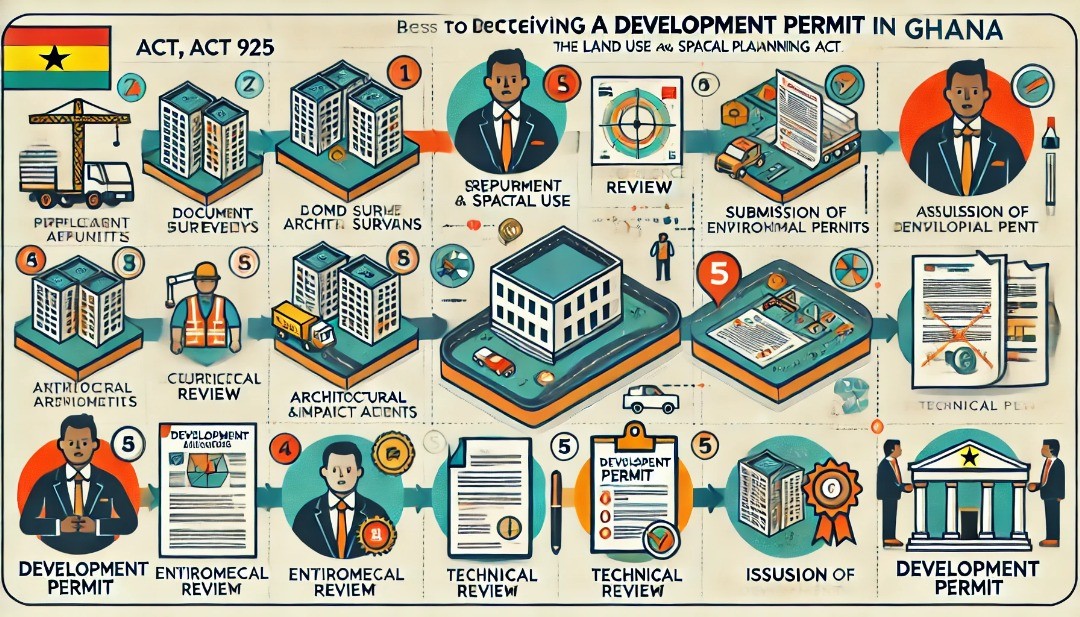Oct 23, 2024

POT System Team
Essential Requirements for a Development Permit in Ghana
Securing a development permit in Ghana involves more than just submitting plans. Guided by the Land Use and Spatial Planning Act, 2016 (Act 925), here’s a list of essential requirements applicants must meet to get approval for development projects.
1. Zoning and Land Use Compliance
Ensure that your project aligns with local zoning requirements. Obtain a Land Use Conformity Report to confirm compliance.
2. Environmental and Social Impact Assessments (EIA/SIA)
Some projects require an EIA or SIA to evaluate the project's effects on the environment and local community, typically followed by an Environmental Permit.
3. Community and Stakeholder Consultation
Engage with the community, traditional authorities, and other stakeholders, especially for projects impacting public spaces or local neighborhoods.
4. Proof of Land Ownership
Submit land title, lease agreement, or legal documents confirming your rights to the land.
5. Physical Planning Department Clearance
Obtain clearance from the Physical Planning Department, verifying that the project fits within local spatial development plans.
6. Submit Site Plan and Development Scheme
Your site plan should show boundaries, layout, utilities, landscaping, and access points. Ensure it meets local planning standards.
7. Utility Service Clearances
Get clearances for water, electricity, and waste disposal to confirm utility access.
8. Traffic Impact Assessment (TIA)
If applicable, a TIA may be necessary to ensure the development doesn’t negatively impact local traffic and road safety.
9. Submit Architectural and Engineering Drawings
Ensure all drawings meet building codes and standards for safety and structural integrity.
10. Drainage and Waste Management Plan
Outline plans for storm water management and waste disposal during and after construction.
11. Public Notice and Objection Period
Publish a public notice to allow for community objections or input, especially for large projects.
12. Compliance with Buffer Zones
Respect buffer zones for sensitive areas like wetlands and forests.
Each requirement plays a part in maintaining sustainable land use in Ghana, protecting the community, and ensuring efficient use of space.
📞 Contact Us (+233-20-461-3757) – We offer assistance in every step of the development permit process.